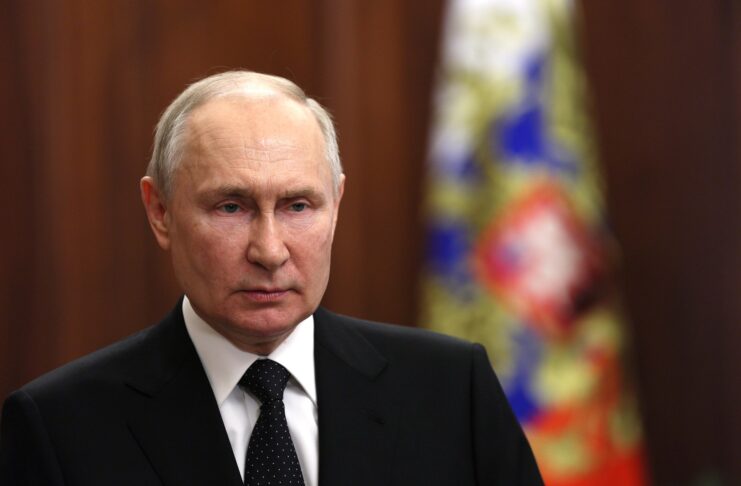The astonishing scenes and breathless reporting over the (apparently) short-lived mutiny of Wagner Group mercenaries and their leader, Yevgeny Prigozhin, in Russia has the foreign policy apparatus in the West and elsewhere wondering what happens next.
A great deal of that depends on what the real situation is on the ground. And those who are honest about the situation all say the same thing: no one knows for sure. Which likely includes many people in and around Russian dictator Vladimir Putin, including various oligarchs, courtiers and hangers-on.
Of the many takes on what might be happening, historian and author Stephen Kotkin's observations in Foreign Affairs are among the best of the bunch. According to Kotkin, one result of the weekend's events is the death of the Putin mystique as the smartest man in the room who is able to manipulate personalities and situations to serve his own ends:
There is one thing that all dictators properly fear: an alternative. And Putin, shockingly, after years and years of indefatigably suppressing alternatives, of promoting nonentities to his inner circle to ensure no one could threaten him, has allowed one to take shape. Pinch me.
Authoritarian regimes build up formidable military and security services, but these are purposely divided against themselves by the leader, to control them, to make them dependent on him. The leader deliberately gives them overlapping jurisdictions, heightens their inherent rivalries at every turn, and sits back and watches, usually with glee. But in this case, Putin has conjured up his own nemesis [Prigozhin].
For the moment, it appears Nemesis has been exiled to the Russian satellite state of Belarus. How long he remains there (and remains alive, period) is unknown. Could others appear out of the shadows to assume the role of Nemesis? Possibly. We simply don't know at this time. And Kotkin reminds us that when it comes to regime change in Russia, the safe bet for the last century or so has been on the gang currently in power:
We have to be careful not to indulge in wishful thinking. Coups in Russia have a terrible track record. Globally, almost every coup fails. The odds are long. But now, at least, there are odds.
What are those odds? Unknown. And there is also the real possibility that things end up close to where they started, which means “Putin in power in Moscow and Ukraine facing a counteroffensive that will be very difficult to pull off.”
But there's also this…Putin invoked the ghosts of 1917 when he called the mutineers traitors who were stabbing the country in the back in time of war. If those ghosts have any instructive power left in them (and they certainly do with Putin), then consider how quickly the last tsar went from autocrat of Russia to prisoner of the revolution:
When riots broke out in Petrograd (St. Petersburg) on March 8, 1917, Nicholas instructed the city commandant to take firm measures and sent troops to restore order. It was too late. The government resigned, and the Duma, supported by the army, called on the emperor to abdicate. At Pskov on March 15, with fatalistic composure, Nicholas renounced the throne—not, as he had originally intended, in favour of his son, Alexis, but in favour of his brother Michael, who refused the crown.
Seven days. History's clock is still ticking.
The opinions expressed in this article are those of the author and do not necessarily reflect the positions of American Liberty News.
READ NEXT: Record-Setting Legislator Arrested For Disturbing Sex Crimes



Face WW3??